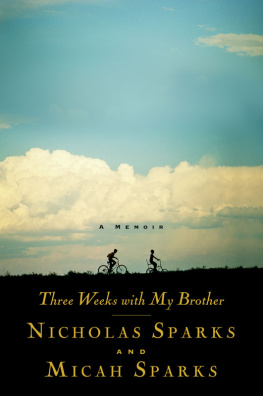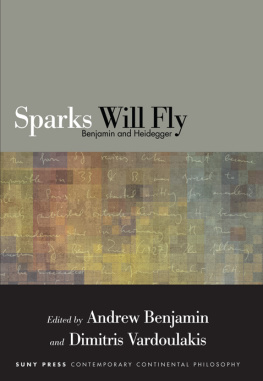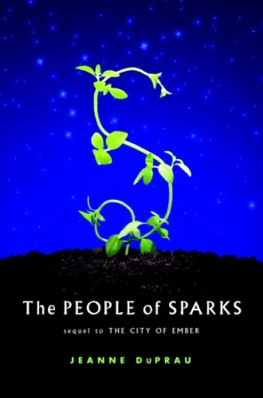PREFACE.
Table of Contents
In the same week, and within three days of the same date, I received from three Judges of the Supreme Court, of three States, the request that I would record my remembrances of the men and things I had known for fifty years. The gentlemen making this request were Joseph Henry Lumpkin, of Georgia; William L. Sharkey, of Mississippi, and James G. Taliaferro, of Louisiana.
From Judge Sharkey the request was verbal; from the other two it came in long and, to me, cherished letters. All three have been my intimate friendsLumpkin from boyhood; the others for nearly fifty years. Judge Lumpkin has finished his work in time, and gone to his reward. Judges Sharkey and Taliaferro yet live, both now over seventy years of age. The former has retired from the busy cares of office, honored, trusted, and beloved; the latter still occupies a seat upon the Bench of the Supreme Court of Louisiana.
These men have all sustained unreproached reputations, and retained through their long lives the full confidence of the people of their respective States. I did not feel at liberty to resist their appeal: I had resided in all three of the States; had known long and intimately their people; had been extensively acquainted with very many of the most prominent men of the nationand in the following pages is my compliance.
I have trusted only to my memory, and to a journal kept for many years, when a younger man than I am to-dayhastening to the completion of my seventieth year. Doubtless, I have made many mistakes of minor importance; but few, I trust, as to matters of fact. Of one thing I am sure: nothing has been wilfully written which can wound the feelings of any.
Many things herein contained may not be of general interest; but none which will not find interested readers; for while some of the individuals mentioned may not be known to common fame, the incidents in connection with them deserve to be remembered by thousands who knew them.
These Memories are put down without system, or order, as they have presented themselves, and have been related in a manner which I have attempted to make entertaining and instructive, without being prolix or tedious. They will be chiefly interesting to the people of the South; though much may, and, I hope, will be read by those of the North. Some of my happiest days have been passed in the North: at Cambridge some of my sons have been educated, and some of my dearest friends have been Northern men. Despite the strife which has gone far toward making us in heart a divided people, I have a grateful memory of many whose homes and graves were and are in New England.
Would that this strife had never been! But it has come, and I cannot forego a parent's natural feelings when mourning the loss of sons slain in the conflict, or the bitterness arising therefrom toward those who slew them. Yet, as I forgive, I hope to be forgiven.
There are but few now left who began the journey of life with me. Those of this number who still sojourn in our native land will find much in these pages familiar to their remembrance, and some things, the reading of which may revive incidents and persons long forgotten. In the West, in Louisiana, Mississippi, Alabama, and Texas, there are manythe descendants of those who participated in events transpiring fifty years agowho have listened at the parental hearth to their recital. To these I send this volume greeting; and if they find something herein to amuse and call up remembrances of the past, I shall feel gratified.
To the many friends I have in the Southwest, and especially in Louisiana and Mississippi, where I have sojourned well-nigh fifty years, and many of whom have so often urged upon me the writing of these Memories, I commit the book, and ask of them, and of all into whose hands it may fall, a lenient criticism, a kindly recollection, and a generous thought of our past intercourse. It is an inexorable fate that separates us, and I feel it is forever. This sad thought is alleviated, however, by the consciousness that the few remaining sands of life are falling at the home of my birth; and that when the end comes, as very soon it must, I shall be placed to sleep amid my kindred in the land of my nativity.
The Author.
THE MEMORIES OF FIFTY YEARS.
Table of Contents
CHAPTER I.
Table of Contents
REVOLUTIONARY TRADITIONS.
Middle GeorgiaColonel David LoveHis WidowGovernor DunmoreColonel TarletonBill CunninghamColonel FanninMy Grandmother's BibleSolomon's Maxim AppliedRobertus LoveThe Indian WarriorDragon CanoeA Buxom LassGeneral GatesMarionMason L. WeemsWashington"Billy Crafford."
My earliest memories are connected with the first settlement of Middle Georgia, where I was born. My grandparents on the mother's side, were natives of North Carolina; and, I believe, of Anson county. My grandfather, Colonel David Love, was an active partisan officer in the service of the Continental Congress. He died before I was born; but my grandmother lived until I was seventeen years of age. As her oldest grandchild, I spent much of my time, in early boyhood, at her home near the head of Shoulderbone Creek in the county of Green. She was a little, fussy, Irish woman, a Presbyterian in religion, and a very strict observer of all the duties imposed upon her sect, especially in keeping holy the Sabbath day. All her children were grown up, married, and, in the language of the time, "gone away." She was in truth a lone woman, busying herself in household and farming affairs. With a few negroes, and a miserably poor piece of land, she struggled in her widowhood with fortune, and contrived, with North Carolina frugality and industry, not only to make a decent living, but to lay up something for a rainy day, as she phrases it. In her visits to her fields and garden, I ran by her side and listened to stories of Tory atrocities and Whig suffering in North Carolina during the Revolution. The infamous Governor Dunmore, the cruel Colonel Tarleton, and the murderous and thieving Bill Cunningham and Colonel Fannin, both Tories, and the latter natives to the soil, were presented graphically to me in their most hateful forms. In truth, before I had attained my seventh year, I was familiar with the history of the partisan warfare waged between Whig and Tory in North and South Carolina, from 1776 to 1782, from this good but garrulous old lady. I am not so certain she was good: she had a temper of her own, and a will and a way of her own; and was good-natured only when permitted this way without opposition, or cross. Perhaps I retain a more vivid memory of these peculiar traits than of any others characterizing her. She permitted no contradiction, and exacted implicit obedience, and this was well understood by everything about her. She was strict and exacting, and had learned from Solomon that to "spare the rod was to spoil the child." She read the Bible only; and it was the only book in the house. This Bible is still in existence; it was brought by my grandfather from Europe, and is now covered with the skin of a fish which he harpooned on his return voyage, appropriating the skin to this purpose in 1750. She had use for no other book, not even for an almanac, for at any moment she could tell the day of the month, the phase of the moon and the day General Washington captured Cornwallis; as also the day on which Washington died. Her reverence for the memory of my grandfather was idolatry. His cane hung with his hat just where he had habitually placed them during his latter days. His saddle and great sea-chest were preserved with equal care, and remained undisturbed from 1798 to 1817, precisely as he left them. I ventured to remove the cane upon one occasion; and, with a little negro or two, was merrily riding it around in the great lumber-room of the house, where scarcely any one ever went, when she came in and caught me. The pear-tree sprouts were immediately put into requisition, and the whole party most mercilessly thrashed. From that day forward the old buckhorn-headed cane was an awful reminder of my sufferings. She was careful not to injure the clothing of her victims, and made her appeals to the unshielded cuticle, and with a heavy hand for a small woman.












